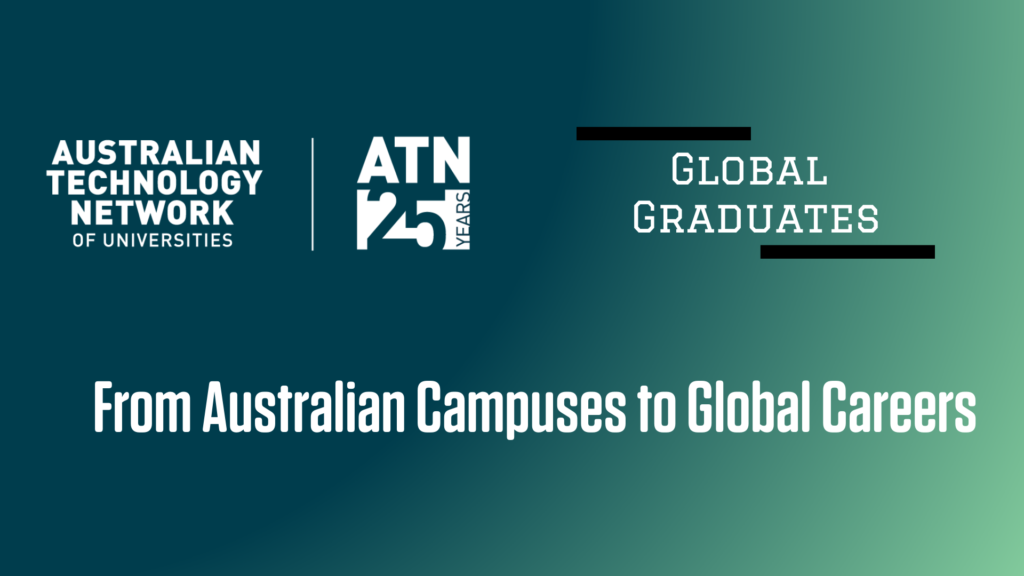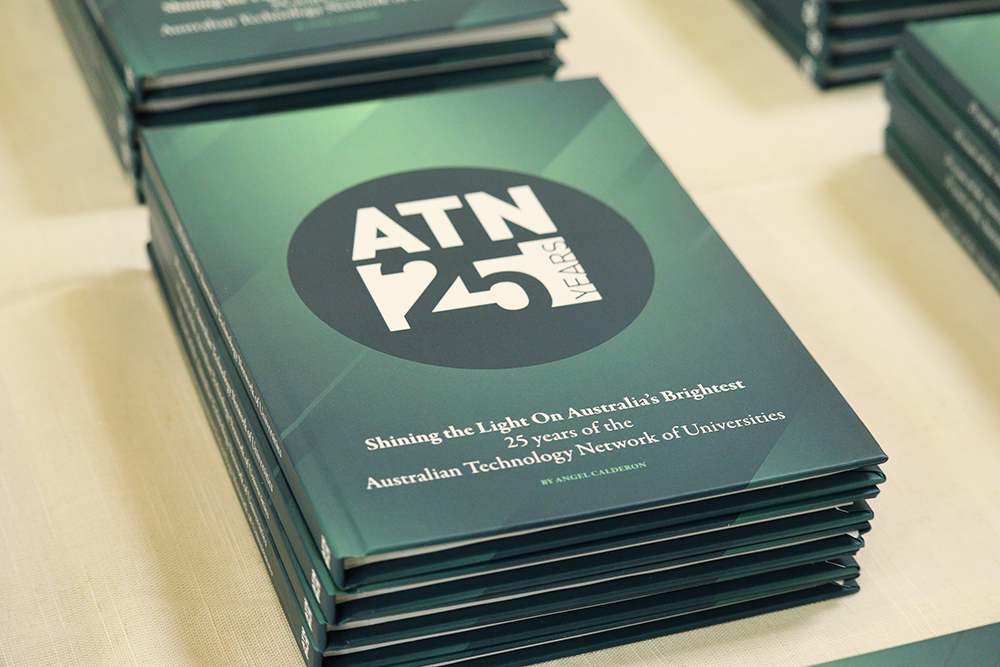
ATN interviews Professor Craig Gaskell from Teesside University ahead of the UK Alliance trip to ATN Universities across Australia.
Why did you choose your field of research?
My academic career started in Computer Science, and I quickly got into the practical side of software engineering, focussing on improving the process of better understanding requirements with non-technical users to help technical implementations better hit the mark. My father and grandfather were both engineers, always working on solving problems, large and small, and I think that must have been influential. Practical application, translation and the impact of research and innovation on practice has remained a theme throughout my career, as my interests diversified. The discipline, modelling and solution finding traits of a software engineer, that I learned early career, still inform my leadership and professional practice today.
Do you have a surprising or fun fact to share from your research?
I remember attending my first ever overseas academic conference as a young researcher, the European Software Engineering Conference, held just outside Barcelona in Spain. It was an inspirational event, if not a little daunting, presenting my first serious conference paper in front of academic royalty in my field. However, my lasting memory is of the conference dinner. It was held up in the mountains, in the grounds of a beautiful villa, with an array of pre-dinner entertainment including music, acrobats and fire eating. Somehow, along with a couple of other delegates, I ended up involved the “human tower” finale of the acrobat show and found myself 4 people up in the structure, with an acrobat climbing up my back on their way to the top. Certainly not an experience I’d anticipated.
Tell us what your work with your university entails.
I’m Pro Vice-Chancellor for Enterprise & Knowledge Exchange at Teesside University, which has its main base in the Northeast of England. I’m part of the Vice-chancellor’s small executive team and take senior-level responsibility for development and delivery of a cross-cutting Enterprise and Knowledge Exchange strategy, which incorporates Teesside’s enterprise, industry-led research, consultancy and knowledge transfer, student futures (employment, further study and business creation), community interaction, academic-led commercial, commercialisation and external-facing workforce development and skills offer. This portfolio crosses over with the research, teaching and international strategies of the University and delivery relies on a highly collegiate cross-institutional leadership team. It also involves lots of engagement and partnership development work with industry and the public sector, and internally driving an enterprising culture. In addition, I am involved in a range of innovation and change projects, and recently led a project to develop and deliver Teesside’s new campus in London, adopting a contemporary academic model and pedagogy, and a physical and digital cloud-based infrastructure to facilitate access to high-end software and systems both on and off campus. I’m currently driving several initiatives that will bring to life Teesside’s new commercial subsidiary.
How much time do you spend on a university campus? What excites you about working within a university campus?
I spend a lot of time on our campuses, as well as travelling to partner locations, including other university campuses. I’ve always loved the diversity, vibrance and richness of a university campus environment ever since I was an undergraduate myself. Great campuses are hot beds of constructive challenge, mixing different perspectives and enabling everyone to learn constantly. They’re special places where it’s safe to push boundaries, try new ideas, challenge status quo, and innovate. I like bringing partners, particularly from industry, into a campus environment, and my favourite spaces are those where students, staff, employers and entrepreneurs naturally interact.
What do you think is the biggest challenge facing higher education in the UK?
The English funding model is under significant pressure with changes in governmental policy impacting international student recruitment patterns, along with a backdrop of fixed domestic funding, in a challenging economic climate where living costs are rising. Universities are challenged to contain costs and scale up income diversification, while maintaining sharp core mission focus – maintaining the student experience. This, combined with a rapidly changing world fuelled by technological advance, and Artificial Intelligence in particular, means the necessary change pace, in multiple dimensions, presents both challenge and exciting opportunities.
A major aim must be ensuring that high quality, life transforming Higher Education remains accessible to the widest possible group, and particularly for those who must balance Higher Education with challenging and complex personal, family, and working lives. Technology and alternative learning models will certainly play a part, however maintaining and extending access to high quality and diverse campus environments will also need to be a critical focus.
Do you have a hobby?
I love music and have been a brass musician since teenage. I still play Cornet, but much less than I used to, with family life taking top priority. I have 3 children, in the 9-15 age range so they keep me busy outside of work. I love doing things with the kids outdoors. I’ve been a keen (although technically not brilliant) mountain biker for many years and help out with coaching an under 14s rugby team at the weekend.
Can you tell us of a book, film or TV show you recently read or watched that you would recommend and why?
It has to be the film, “Brassed Off”. I’m not sure how it translates internationally, but for me it captures brilliantly the collapse of the UK mining industry, its impact on families and communities in the North of England, and the core role music played in those communities. For me it’s a potent mix of comedy and tragedy, and much of it resonates with what I experienced personally growing up. I’d not watched it for a long time, but I watched it again recently, with my two teenagers – and they were gripped.
What’s your dream holiday destination and why?
Sri Lanka – and I’m hoping to go with the family this summer!
What would you say to a student about to begin their higher education journey in 2024?
Engage with every opportunity that comes your way, meet as many people from different backgrounds and perspectives as you can, try new things, especially when they push you out of your comfort zone, and above all work hard so you know you’ve done your absolute best to take full advantage of what higher education has to offer.
What are you hoping to find on your trip to our campuses?
I’m looking to get a good understanding of the Australian system and its policy drivers, how it compares with the UK system, and how institutions are anticipating potential future systemic changes. I’m also keen to get an “on the ground” feel for the various campuses we visit and a snapshot of the different institutional cultures. I’ll be in full learning mode and will be on the lookout for novel practice, innovation, and fresh thinking that translate to the current and evolving UK context.

